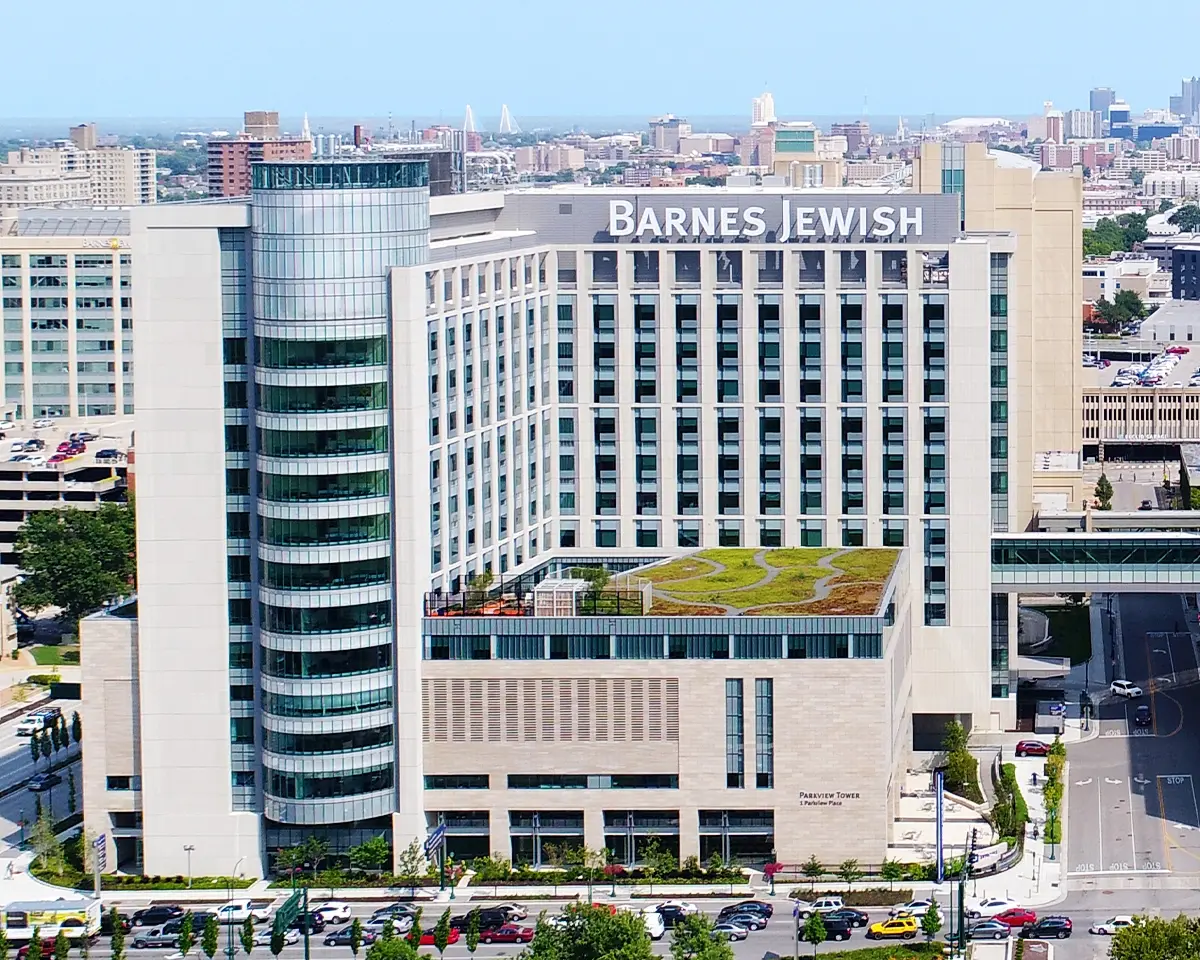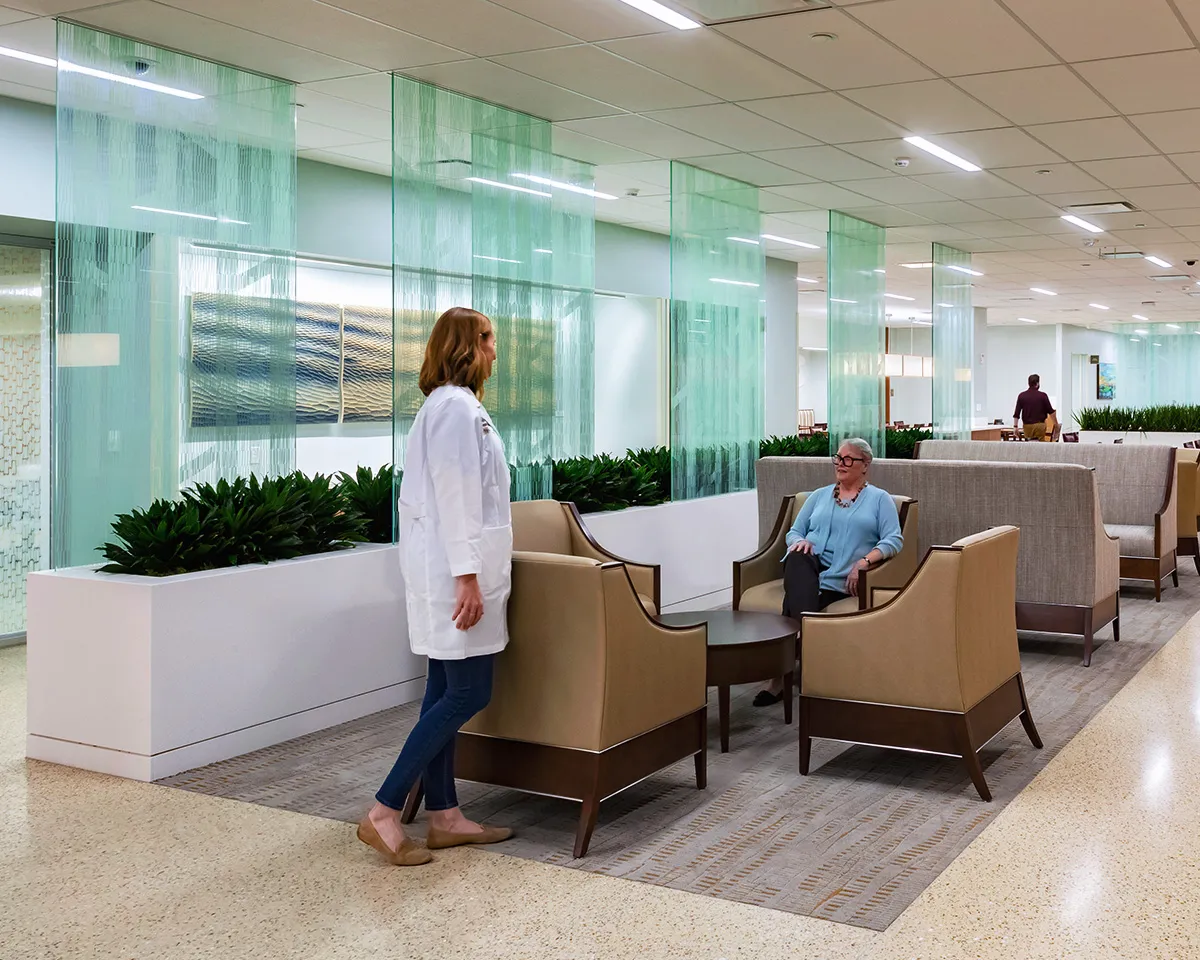Orthopedic Oncology
Sarcomas and other musculoskeletal tumors are rare growths affecting bone and soft tissue. They are challenging to diagnose and treat. But here, you’ll find hope for healing. Nationally recognized orthopedic oncologists use advanced techniques to remove tumors while optimizing limb function.
BJC HealthCare works with Washington University physicians, BJC Medical Group, and providers across the region to deliver extraordinary care. You deserve extraordinary services that enable you to live the best possible quality of life. And you’ll find it at here. Our team includes nationally recognized musculoskeletal oncology specialists (orthopedic oncologists). We offer:
Uncommon expertise: We have one of few programs in the region with orthopedic oncologists. Their experience from regularly treating sarcomas and other tumors leads to precise care. They use research-based methods to treat musculoskeletal tumors anywhere in the body and maintain exceptional outcomes. We also deliver age-appropriate care to children and young adults. Explore pediatric orthopedics.
Compassion: We recognize the questions that sarcomas and musculoskeletal tumors may raise about your future. Experts take time to provide answers in ways that are easier to understand. We review treatment options and help you make informed decisions so you can feel confident about next steps.
Connected and comprehensive care: Orthopedic oncologists collaborate with other specialists to deliver seamless, personalized therapies. We manage all the details, whether complex procedures requiring multiple surgeons, additional cancer treatments or rehabilitation. Find out more about cancer care.
Limb salvage surgery: We excel in techniques that remove tumors while preserving healthy tissue, so amputation is rarely necessary. This level of expertise is not widely available in the St. Louis area.
The best care comes from programs like ours that regularly diagnose and treat musculoskeletal tumors. Our expertise includes treating rare and complex tumors affecting children and adults, including:
Osteochondroma
Rhabdomyosarcoma
Osteosarcoma
Ewing sarcoma
Non-surgical treatments may remove trace levels of cancer that remain after surgery. These therapies are also for people who aren’t eligible for surgery. Non-surgical treatment may shrink the cancer, providing symptom relief.
Non-surgical musculoskeletal treatments include:
Musculoskeletal tumors often require surgery. Orthopedic oncologists use special techniques that optimize mobility and function. Patients avoid amputation in more than 90% of cases because of our extensive experience in limb salvage techniques.
Specific surgical procedures used in reconstructing a limb after tumor removal include:
Rehabilitation starts soon after treatment, once a patient is surgically and medically stable. Inpatient rehabilitation focuses on teaching patients how to move and function safely with reconstructed limbs and continues on an outpatient basis.
For patients requiring amputation, post-surgery prosthetic fitting and rehabilitation is coordinated by our team.
 Barnes-Jewish Hospital
Barnes-Jewish Hospital Barnes-Jewish West County Hospital
Barnes-Jewish West County Hospital
- Resource
Schedule your appointment
Call (314) 362-9355 or (800) 392-0936 to schedule your appointment with a specialist.